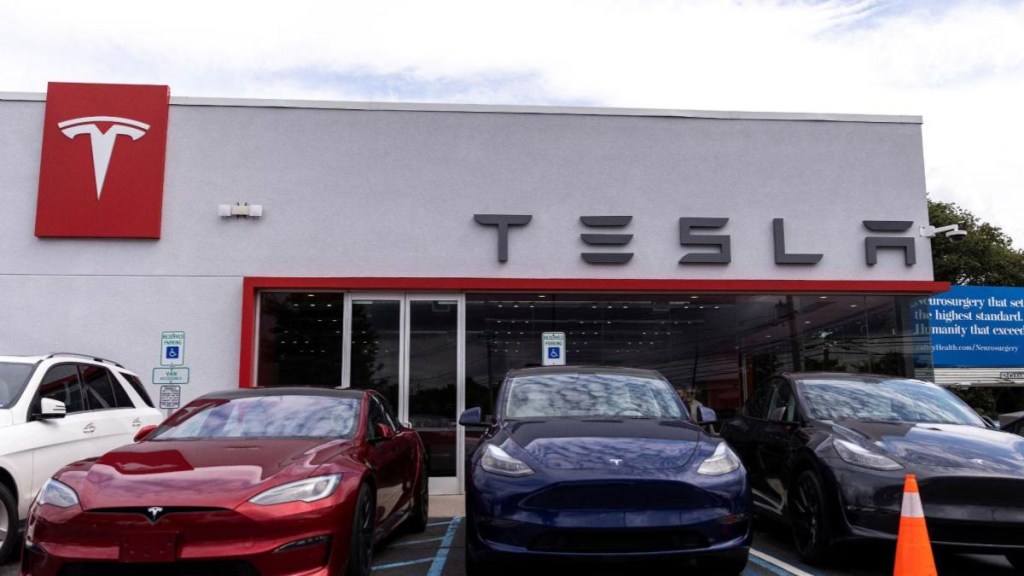After many years of will it, won’t it, Elon Musk’s Tesla is set to make its India debut on July 15. Based on reports, Mumbai will be the home to Tesla’s first dealership that will be based out of Bandra Kurla Complex (BKC). The electric car company will be directly importing vehicles from its Shanghai manufacturing plant, and the first batch has already arrived in India. Tesla’s first product is going to be its best-seller, Model Y, which got an update earlier in January.
Tesla in India: What to expect?
Tesla will enter the Indian automobile market with the Model Y, which starts from $37,490 in the U.S. The Model Y is available in two versions — Long Range Rear-Wheel Drive and Long Range All-Wheel Drive. The latter starts at $41,490. These prices include the tax credits on EVs available in the U.S. Otherwise, the Model Y starts from $44,990 (around Rs 38 lakh).
Bloomberg revealed that five made-in-India Tesla Model Y SUVs are already in Mumbai.
The official records indicate that each Model Y is valued at an estimated cost of Rs 27.7 lakh (about $31,988). With India’s 70% import tariff on fully assembled electric cars under $40,000, the import duty for each Model Y is expected to surpass $56,000 (Rs 48 lakh), excluding additional local taxes and insurance.
Tesla Model Y
The Model Y is offered globally in two main variants — Long Range Rear-Wheel Drive (RWD) and Long Range All-Wheel Drive (AWD). The Long Range RWD version delivers an estimated range of 574 km (EPA) and can accelerate from 0 to 100 kmph in 5.4 seconds. The Long Range AWD model, equipped with dual motors, provides a range of 527 km and achieves 0 to 100 kmph in 4.6 seconds.
India’s EV adoption plan
As part of efforts to make India more attractive to international automakers and boost electric vehicle adoption, Finance Minister Nirmala Sitharaman had earlier announced in the Union Budget a significant reduction in import tariffs for luxury vehicles valued above $40,000. The customs duty on these high-end imports has been brought down from 125% to 70%, making premium cars more accessible to Indian buyers.
In addition, the government has scrapped the customs duty on lithium-ion batteries used in electric vehicles. The idea here is to help lower production costs for EVs and support domestic manufacturing in the EV sector.
